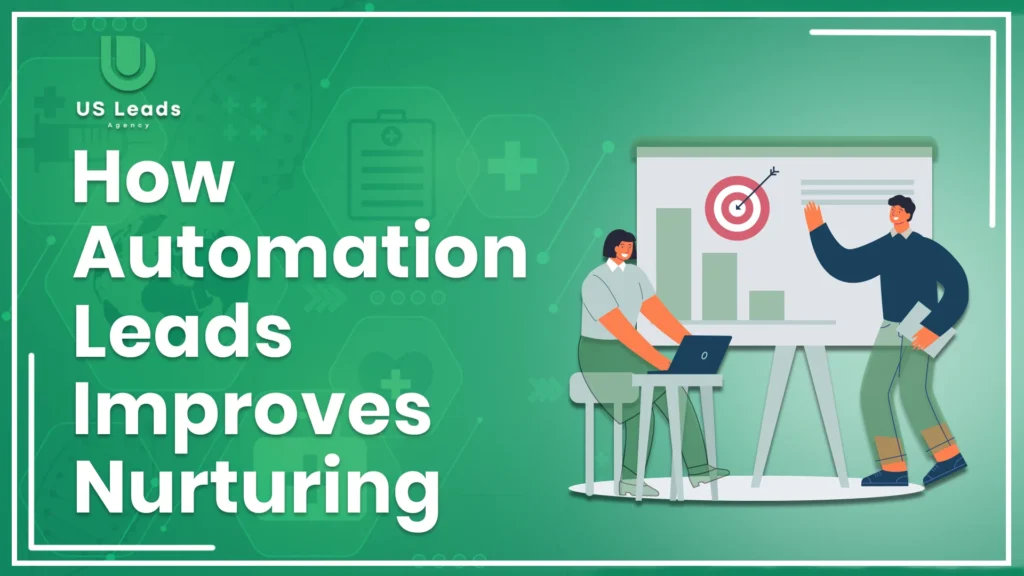
Nurturing leads effectively is a crucial aspect of the insurance sales process, especially for final expense insurance, where the sales cycle can be longer and requires consistent follow-up. Role of Automation is really important in final expense lead nurturing that transforms how agents and companies engage with leads, allowing for more efficient, timely, and personalized communications. By leveraging automation, agents can focus on high-priority tasks, while ensuring no lead slips through the cracks due to lack of follow-up.
This article explores how automation is critical in final expense lead nurturing and offers strategies to incorporate it into your sales process.
Key Takeaways:
- Streamline lead follow-up with automation to ensure timely and consistent communication with potential clients.
- Personalize communications at scale using data-driven insights, ensuring that each lead receives messaging tailored to their needs and preferences.
- Automate lead scoring and prioritization to focus on high-potential leads, ensuring that you spend your time where it’s most valuable.
- Use timely triggers to engage leads at critical points in their journey, keeping them interested and moving through the sales funnel.
- Nurture long-term leads with drip campaigns that provide ongoing value and education, building trust and increasing the likelihood of future conversions.
Table of Contents
The Role of Automation in Final Expense Lead Nurturing:
1. Streamlining Lead Follow-Up
One of the most time-consuming tasks for insurance agents is following up with leads. Automation helps streamline this process by setting up workflows that send timely follow-up emails, text messages, or reminders without manual intervention. For example, when a potential client fills out a form on your website expressing interest in final expense insurance, an automated system can instantly send a personalized email thanking them and providing more information about your offerings.
Automation ensures that no lead is left unattended and that your follow-up is timely, which is critical in converting interest into a sale.
- Example: Set up an automated email sequence for new leads that send educational content about final expense insurance, a testimonial from a satisfied customer, and a reminder to schedule a consultation.
2. Personalizing Communications at Scale:
While automation is often associated with generic, one-size-fits-all messaging, modern automation platforms offer the ability to personalize communications at scale. With data-driven insights, you can tailor your automated messages to reflect the specific needs and interests of each lead.
For instance, if a lead has expressed concern about affordability, your automated follow-up emails can highlight low-cost final expense plans. On the other hand, if the lead is more concerned about coverage options, the automation can send details about comprehensive packages and plan comparisons.
- Example: Use dynamic content in your emails that adjusts based on the lead’s age, financial situation, or previous interactions with your website or landing page.
3. Automated Lead Scoring and Prioritization:
Automation allows you to implement lead scoring, a system where each lead is assigned a score based on their engagement level and likelihood to convert. With automated lead scoring, agents can prioritize which leads to focus on first, ensuring that high-potential leads receive immediate attention while others are nurtured over time.
Lead scoring is based on various factors, such as how many times a lead has visited your website, opened emails, or filled out forms. By automating this process, you can identify when a lead is ready for direct outreach, improving your conversion rates and saving time.
- Example: Leads who open multiple emails or visit key pages on your website (such as pricing or testimonials) can be automatically assigned a higher score, triggering a sales call from an agent.
4. Improving Engagement With Timely Triggers:
Automated workflows allow you to set up triggers that engage leads at key points in their journey. For instance, if a lead has requested a quote but hasn’t followed up, an automated reminder email can be sent within 24 hours, prompting them to take the next step. These timely touches keep your leads engaged and help guide them down the sales funnel.
By using automation to engage leads at the right moment, you reduce the chances of losing them due to a lack of attention or follow-up.
- Example: Set up a trigger to send a discount offer or a limited-time promotion to leads who have shown interest but haven’t yet committed.
5. Nurturing Long-Term Leads With Drip Campaigns:
Final expense insurance often requires long-term nurturing, especially if a lead isn’t ready to make an immediate decision. Automation enables you to set up drip campaigns that send valuable information to leads over an extended period. These campaigns can include educational content, testimonials, industry news, or reminders to review their options.
Drip campaigns allow you to stay top-of-mind with your leads, building trust and demonstrating the value of final expense insurance without overwhelming them with hard sales tactics.
- Example: Create a 6-month drip campaign that sends leads monthly tips on financial planning, funeral arrangements, or the benefits of securing a final expense policy early.
Conclusion – Role of Automation:
Automation plays a pivotal role in final expense lead nurturing, allowing agents to stay organized, increase efficiency, and improve the overall customer experience. From streamlining follow-up to personalizing communications at scale, automation helps ensure that no lead is neglected while still providing the personalized attention needed to convert leads into policyholders. Moreover, lead scoring, timely engagement triggers, and long-term drip campaigns provide ongoing opportunities to maintain relationships and eventually close sales.
As the final expense insurance market grows more competitive, leveraging automation can be the key differentiator that helps your business stand out, save time, and close more deals.
